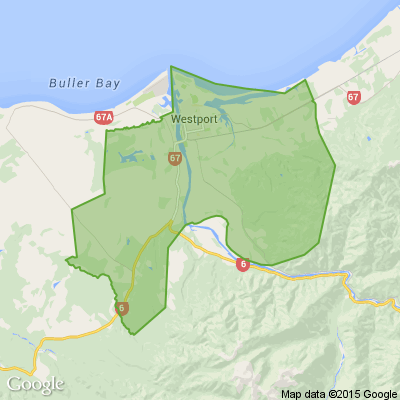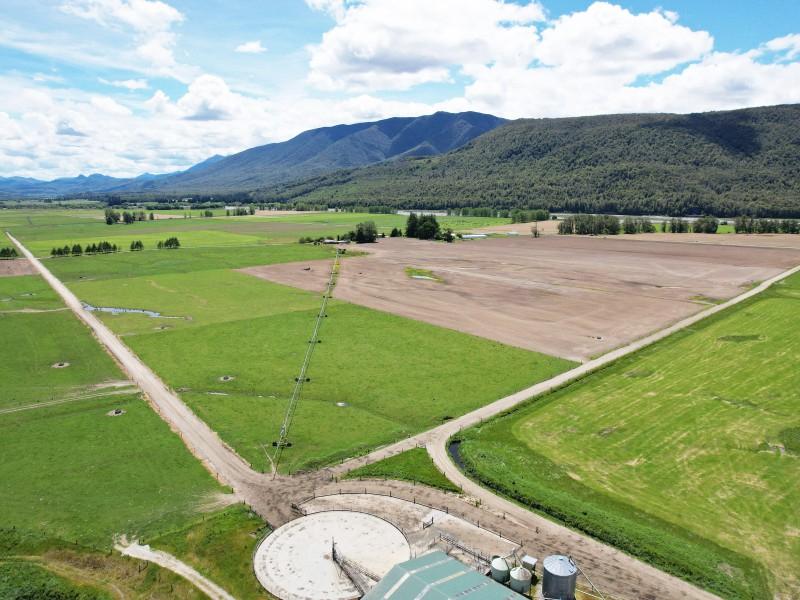West Coast swim spot testing clear of E-coli
By local democracy reporter Brendon McMahon:
The latest testing at a popular Westport swimming beach appear to show an all clear for E coli.
Earlier samples over summer had flagged contamination from cattle, according to a report to the West Coast Regional Council.
The test site in question, Marrs Beach on the south side of the Buller River has been a focus for the regional council for years however it has had difficulty tracing the sources of e-coli contamination.
Martins Creek enters the river near Marrs Beach and council has formed a catchment group to try and address contamination issues with landholders in the catchment.
Water quality sampling results provided alongside a report to the council's Resource Management Committee gives an overview of results for November 2023 to March 2024.
In the main, the majority of 20 sites tested through summer were in the 'very low risk' category for swimmers.
However beaches around Westport periodically blipped through summer.
Marrs Beach had two flags, in mid-November and mid-January, where testing found the water was of 'moderate to high risk' to swimmers due to E.coli exceedances (between 550 and 280 per 100ml).
Shingle Beach on the opposite side of the Buller River had three moderate to high risk flags: one in mid-December and two through the middle of January.
Other exceedance of water quality standards across the region included one moderate to high risk flag each in mid-January at the popular Taylorville swimming hole in the Grey River, and at Nelson Creek; at Westport North Beach (mid-December) and Punakaiki River (mid-January).
The council undertakes weekly contact recreation water quality sampling at the swimming spots from the end of October to late March.
The report to this week's Resource Management Committee said the last sampling period from February 19 to March 20 did not flag any exceedance despite "significant rainfall" preceding sampling in some locations.
Escherichia coli (E coli) is a bacteria commonly found in the lower intestine of warm-blooded organisms. Some E.coli strain can cause serious food poisoning.
We're talking new year resolutions...
Tidying the house before going to bed each night, meditating upon waking or taking the stairs at work.
What’s something quick, or easy, that you started doing that made a major positive change in your life?

⚠️ DOGS DIE IN HOT CARS. If you love them, don't leave them. ⚠️
It's a message we share time and time again, and this year, we're calling on you to help us spread that message further.
Did you know that calls to SPCA about dogs left inside hot cars made up a whopping 11% of all welfare calls last summer? This is a completely preventable issue, and one which is causing hundreds of dogs (often loved pets) to suffer.
Here are some quick facts to share with the dog owners in your life:
👉 The temperature inside a car can heat to over 50°C in less than 15 minutes.
👉 Parking in the shade and cracking windows does little to help on a warm day. Dogs rely on panting to keep cool, which they can't do in a hot car.
👉 This puts dogs at a high risk of heatstroke - a serious condition for dogs, with a mortality rate between 39%-50%.
👉 It is an offence under the Animal Welfare Act to leave a dog in a hot vehicle if they are showing signs of heat stress. You can be fined, and prosecuted.
SPCA has created downloadable resources to help you spread the message even further. Posters, a flyer, and a social media tile can be downloaded from our website here: www.spca.nz...
We encourage you to use these - and ask your local businesses to display the posters if they can. Flyers can be kept in your car and handed out as needed.
This is a community problem, and one we cannot solve alone. Help us to prevent more tragedies this summer by sharing this post.
On behalf of the animals - thank you ❤️

What word sums up 2024, neighbours?
If 2020 was the year of lockdowns, banana bread, and WFH (work from home)....
In one word, how would you define 2024?
We're excited to see what you come up with!







 Loading…
Loading…














